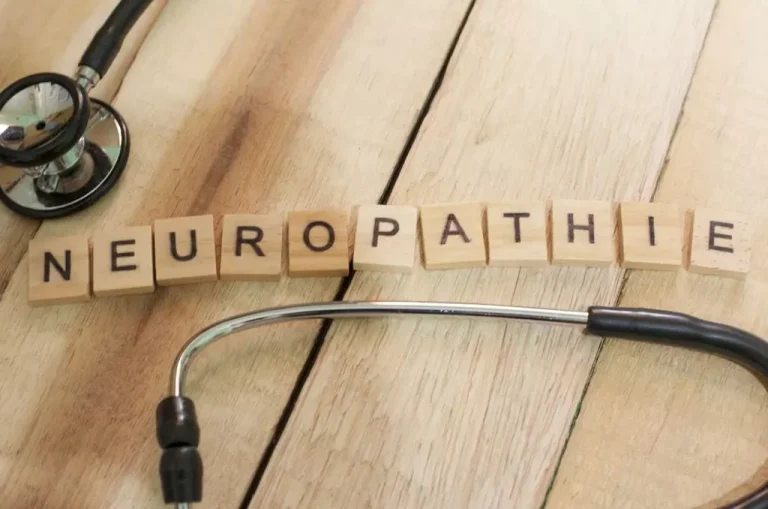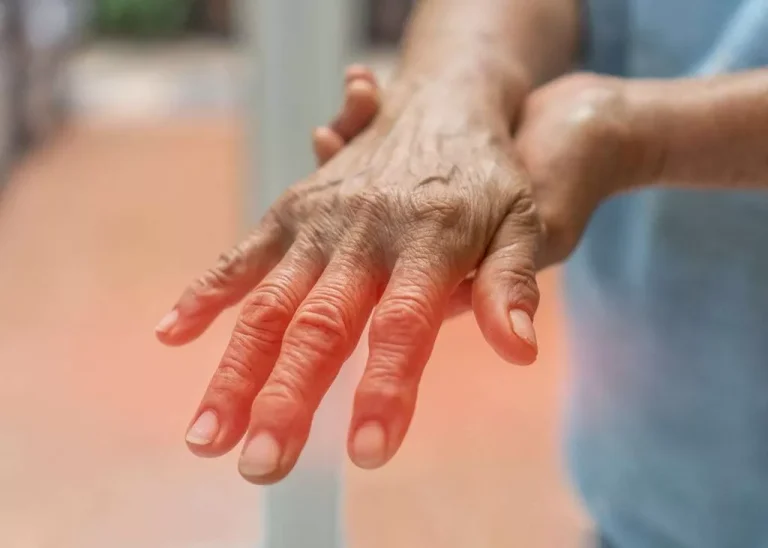Alcohol Neuropathy: Causes, symptoms, treatment

Although for some addicts, alcohol brings incredible sensations, it also brings unbearable pain that accompanies many alcoholic diseases. Alcohol neuropathy is a severe condition that results in nervous system intoxication. However, neuropathy is not just brought on by drunkenness. It can also be brought on by diabetes mellitus or infection. The illness manifests gradually, with alcohol neuropathy symptoms getting worse over time. About 10% of the time, neuropathy occurs suddenly and can potentially harm the body quickly. But don’t worry; if medical treatment is received promptly and in the early phases of the condition, you can fully manage it. If not, it could persist over time.
What does alcohol neuropathy mean?
If you wonder, “Can alcohol cause nerve damage?” you should know about alcohol neuropathy. It is a condition which develops from the body’s ongoing neuropathy and alcohol consumption and manifests as damage to the peripheral nerves. A prolonged pain condition, paresthesia, and decreased cutaneous sensitivity in the afflicted region are all signs of neuropathy. The disease often affects the legs. How much alcohol causes neuropathy? An alcohol-related peripheral neuropathy may develop over several years if a person consumes more than 100 grams of alcohol each day, according to a previous study.

Take back control of your life and start on the road to recovery now.
Causes and how it develops
There are numerous groups of equally significant factors of development:
- harmful effects of alcohol’s byproducts
- a deficiency in B vitamins
- inadequate and imbalanced diet
- elevated blood glucose levels
- genetic modifications to metabolic systems
The progression of alcohol neuropathy is a symptom that alcoholism is in its second or third stage. The condition develops faster when low-quality alcohol or other alcohol-containing drinks are consumed.
Two enzymes, alcohol dehydrogenase, and acetaldehyde dehydrogenase, break down alcohol which enters the body. Genetic traits control the number and pace of these enzymes’ production in the organism. Acetaldehyde is a metabolite that is produced as alcohol is broken down. When alcohol is used often, the intermediate product does not have enough time to degrade and instead builds up, escalating the hazardous impact day by day.
Beginning at the very early stages of alcoholism, alcohol neuropathy eventually progresses to more severe forms and is accompanied by mental illnesses. In the structure of peripheral nerves, this is a numerous diffuse lesion of nerve fibers. Currently, the majority of experts believe the pathogenetic mechanism responsible for the development of alcohol neuropathy is the direct toxic action of alcohol and its metabolites (acetaldehyde). The peripheral nerve system’s protective barrier mechanism is thought to be harmed by heavy drinking. Additionally, genetic factors are quite important.
According to statistics, alcohol neuropathy is seen in 80–100% of instances of alcoholism. In moderate cases, it manifests as minor tingling and numbness in the legs. Still, in severe cases, it causes trouble breathing, cardiovascular issues, and the inability to move independently. The procedure might take up to 10 years and is fatal in 50% of the instances.
Symptoms of alcoholic neuropathy
Alcohol neuropathy is difficult to diagnose since its symptoms develop gradually. The patient’s nervous system failing is the primary sign of the disease’s progression. A person first feels light numbness in their fingers and toes. The ache then continues to extend throughout the limbs. As a result of worsening blood circulation, the patient may have chilly legs. Muscles progressively deteriorate, and you may see it with your own eyes. The frequency of severe convulsions increases, especially at night. The lower extremities’ skin darkens and takes on a “dead” hue.
As the illness progresses, all limbs become entirely paralyzed. As a result, the person becomes physically unable and can’t move. From this point on, most patients frequently spend their whole day in bed. The body continues to degenerate due to alcohol neuropathy of the lower limbs. As is often the case following amputation, a person may suffer phantom pain. Additionally, mental health issues might speed up the progression of the illness.

Complications of alcoholic neuropathy
The most intricate part of the human body is the neurological system. It controls the development of other bodily systems, the proper organs functioning, mental and motor functions, and genesis. As a result, when the nervous system is violated or damaged, the entire body will suffer, with organ failure and even cardiac arrest being a possibility. The condition might impact numerous nerves, including the optic nerve. Later stages of muscle atrophy can cause chronic and irreparable impairment. It is also possible respiratory issues will manifest. A significant decline in memory and mental capacities is likely to occur if the patient continues to drink alcohol in the latter phases, which will ultimately cause dementia.
Treatment of alcohol neuropathy
Most of the time, alcohol neuropathy is treated at home after a consultation with a doctor. Each patient case should be reviewed individually so that the addict can get the personalized plan of treatment. The course of therapy is carried out at a hospital when the disease is in its last stages, and the patient’s life is in danger. The first stages in recovery are determined using a variety of etiological methodologies depending on the disease’s underlying etiology. If alcoholism is the cause, then a complete rejection of alcohol is the key element, without which all additional alcohol neuropathy treatment will be futile. Specifically, alcohol abuse must be fully and permanently stopped, even in tiny amounts.
Resuming the proper routine and a healthy lifestyle will be the next step toward returning to the human state. A well-planned daily program, a nutritious diet, and regular exercise will help the patient recover quickly. Protein- and vitamin-rich diets should be prioritized for those with alcohol neuropathy.

This can be a difficult journey, but you don’t have to go it alone. Let us be your guide and provide you the environment needed to regain control of your life and begin the path to recovery.
Help from Eco Sober Houses
Every alcoholic may leave the weight of nerve damage from alcohol behind at Eco Sober Houses and get help. It is a rehabilitation housing initiative in Boston, Massachusetts. Their services were developed to give you or a family member the individualized addiction recovery support you require. At Eco Sober Houses, the priority lies in holistic healing, centering on the clients’ overall well-being encompassing physical, emotional, mental, and spiritual aspects.This approach is instrumental in helping participants rebuild their sense of self and successfully re-enter society. The MASH (Massachusetts Alliance for Sober Housing) has approved Eco Sober Houses. It indicates the center follows federal guidelines for sobriety. The center upholds the principles of a sober lifestyle, family values, and preservation. To achieve this goal, rehabilitation programs and policies for the continued reintegration of people battling addictions into society, adaptation, and employment were devised.
At Eco Sober Houses Boston, clients enjoy a pleasant lifestyle where a decisive triumph over addiction is guaranteed in every way. Call to Sober House toll-free, anonymous hotline if you’ve decided to start your life over without alcoholism or if you’ve decided to support a loved one on this journey and want to get some information. It’s never too late to start again, free of alcohol and illnesses.




